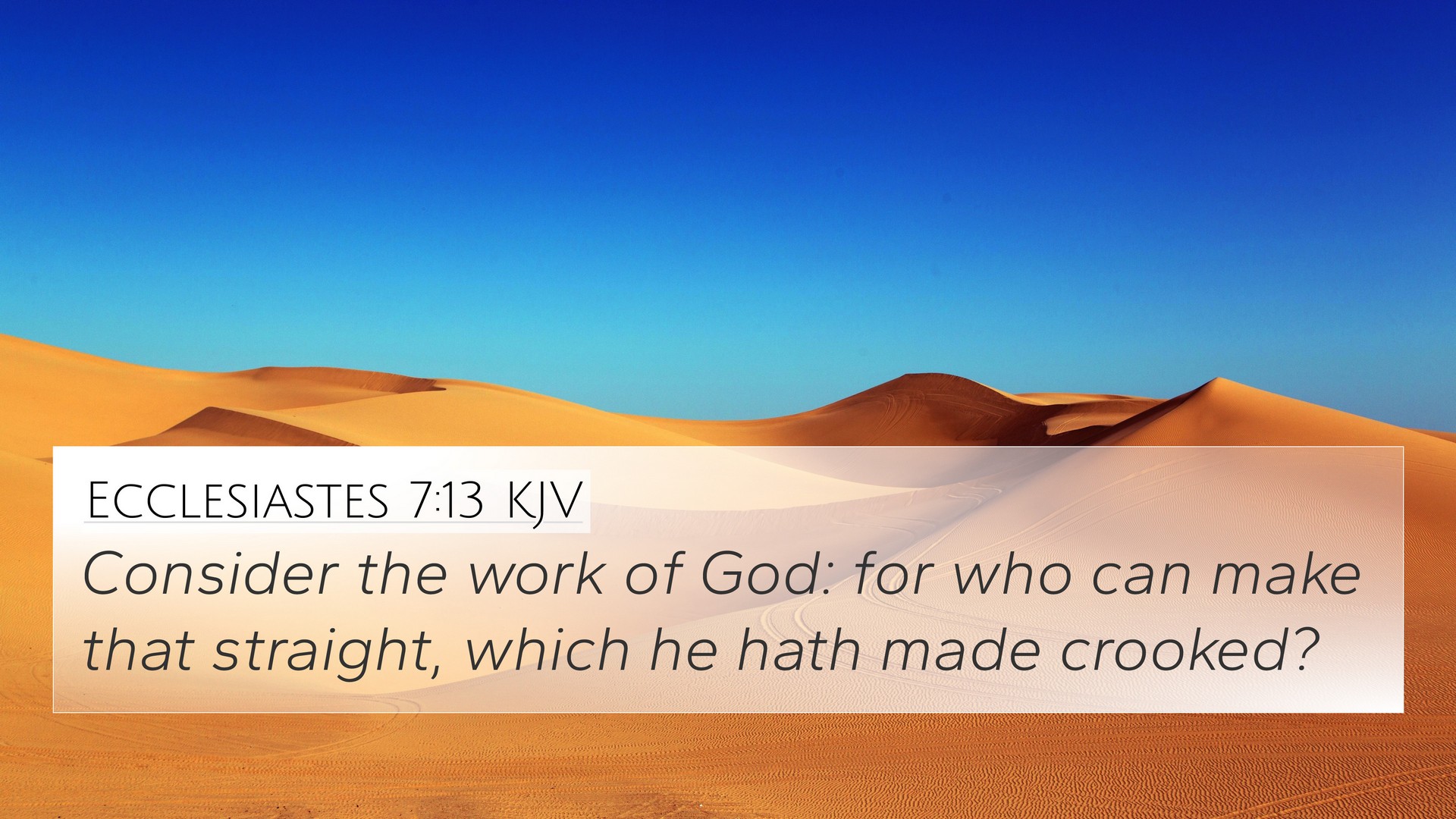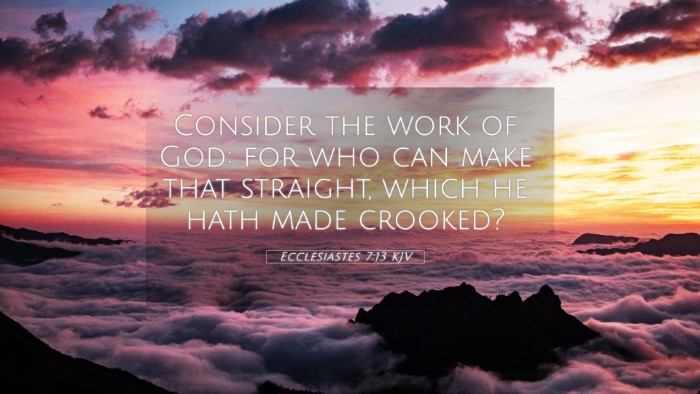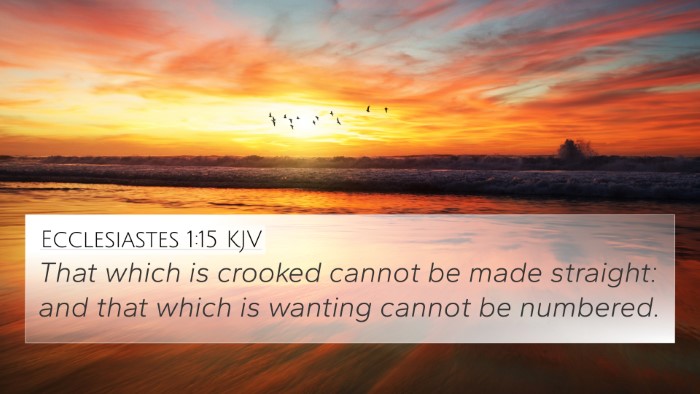This section features a detailed cross-reference designed to enrich your understanding of the Scriptures.
Below, you will find carefully selected verses that echo the themes and teachings related to Ecclesiastes 7:13 KJV. Click on any image to explore detailed analyses of related Bible verses and uncover deeper theological insights.
 Isaiah 5:12 (KJV) »
Isaiah 5:12 (KJV) »
And the harp, and the viol, the tabret, and pipe, and wine, are in their feasts: but they regard not the work of the LORD, neither consider the operation of his hands.
 Job 12:14 (KJV) »
Job 12:14 (KJV) »
Behold, he breaketh down, and it cannot be built again: he shutteth up a man, and there can be no opening.
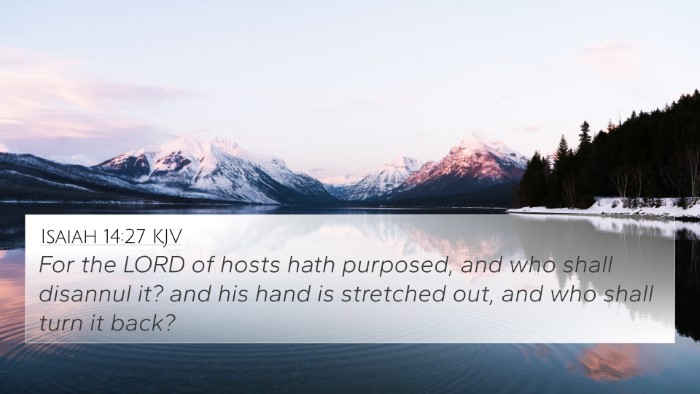 Isaiah 14:27 (KJV) »
Isaiah 14:27 (KJV) »
For the LORD of hosts hath purposed, and who shall disannul it? and his hand is stretched out, and who shall turn it back?
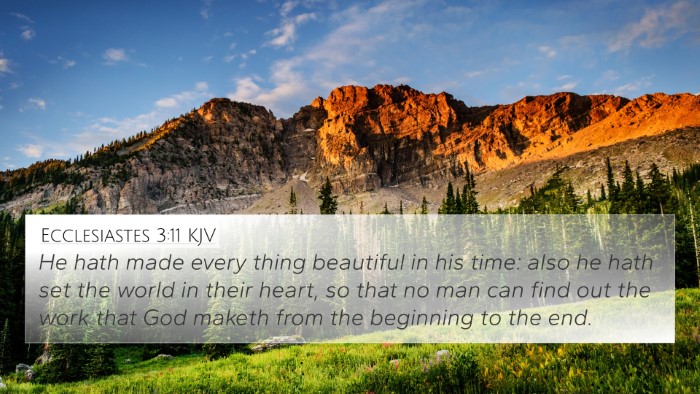 Ecclesiastes 3:11 (KJV) »
Ecclesiastes 3:11 (KJV) »
He hath made every thing beautiful in his time: also he hath set the world in their heart, so that no man can find out the work that God maketh from the beginning to the end.
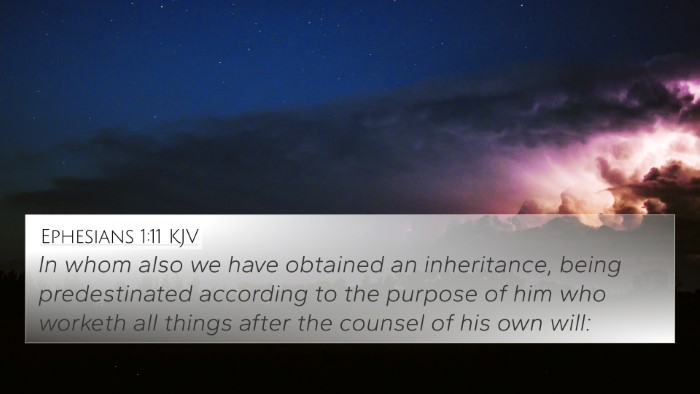 Ephesians 1:11 (KJV) »
Ephesians 1:11 (KJV) »
In whom also we have obtained an inheritance, being predestinated according to the purpose of him who worketh all things after the counsel of his own will:
 Romans 9:15 (KJV) »
Romans 9:15 (KJV) »
For he saith to Moses, I will have mercy on whom I will have mercy, and I will have compassion on whom I will have compassion.
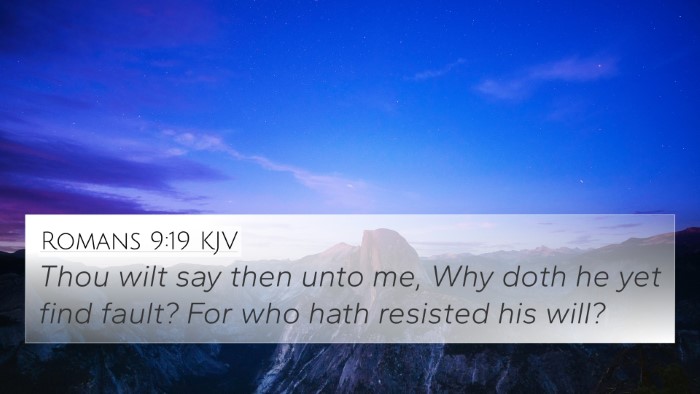 Romans 9:19 (KJV) »
Romans 9:19 (KJV) »
Thou wilt say then unto me, Why doth he yet find fault? For who hath resisted his will?
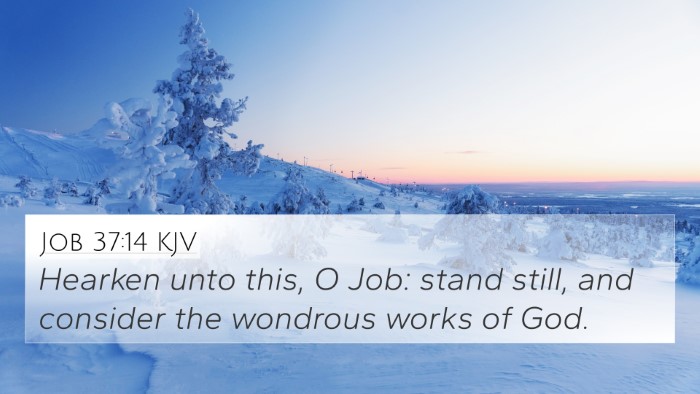 Job 37:14 (KJV) »
Job 37:14 (KJV) »
Hearken unto this, O Job: stand still, and consider the wondrous works of God.
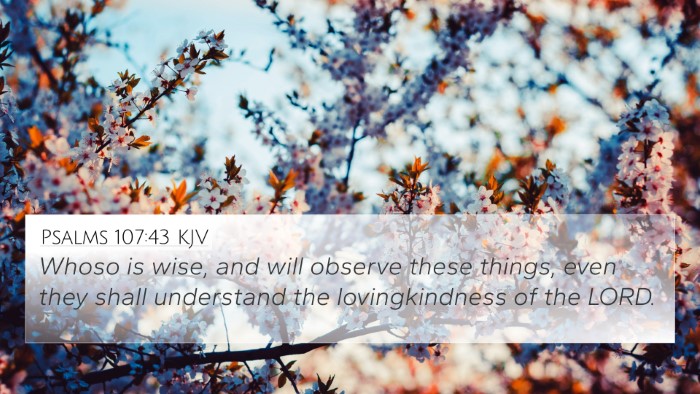 Psalms 107:43 (KJV) »
Psalms 107:43 (KJV) »
Whoso is wise, and will observe these things, even they shall understand the lovingkindness of the LORD.
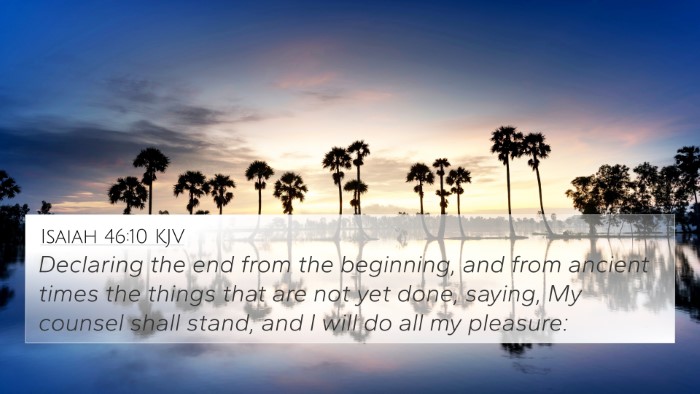 Isaiah 46:10 (KJV) »
Isaiah 46:10 (KJV) »
Declaring the end from the beginning, and from ancient times the things that are not yet done, saying, My counsel shall stand, and I will do all my pleasure:
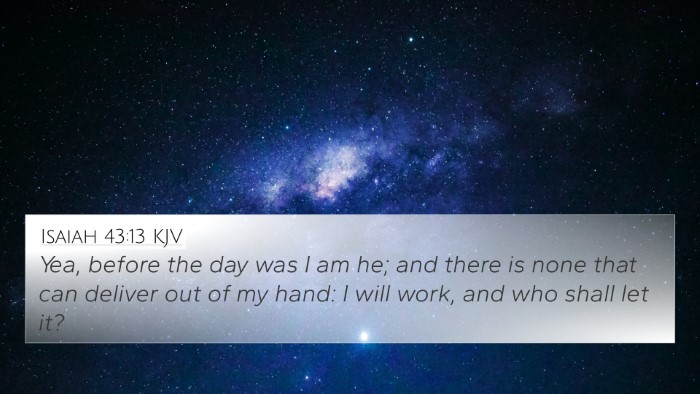 Isaiah 43:13 (KJV) »
Isaiah 43:13 (KJV) »
Yea, before the day was I am he; and there is none that can deliver out of my hand: I will work, and who shall let it?
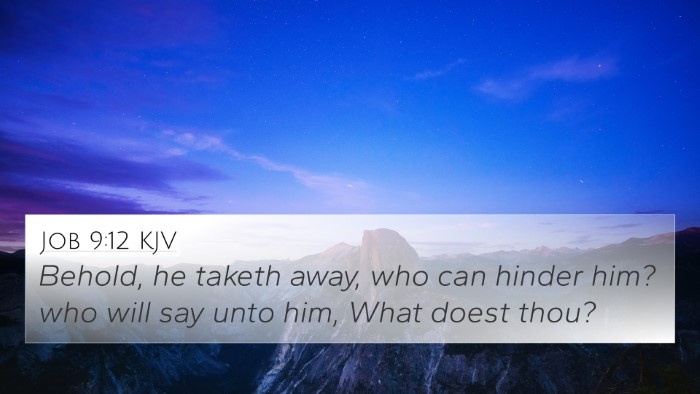 Job 9:12 (KJV) »
Job 9:12 (KJV) »
Behold, he taketh away, who can hinder him? who will say unto him, What doest thou?
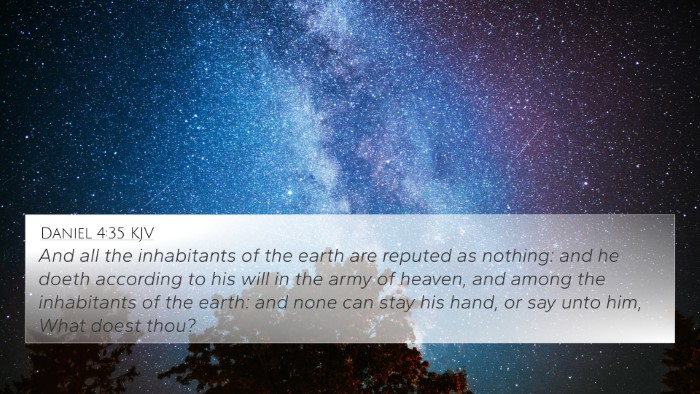 Daniel 4:35 (KJV) »
Daniel 4:35 (KJV) »
And all the inhabitants of the earth are reputed as nothing: and he doeth according to his will in the army of heaven, and among the inhabitants of the earth: and none can stay his hand, or say unto him, What doest thou?
 Job 34:29 (KJV) »
Job 34:29 (KJV) »
When he giveth quietness, who then can make trouble? and when he hideth his face, who then can behold him? whether it be done against a nation, or against a man only:
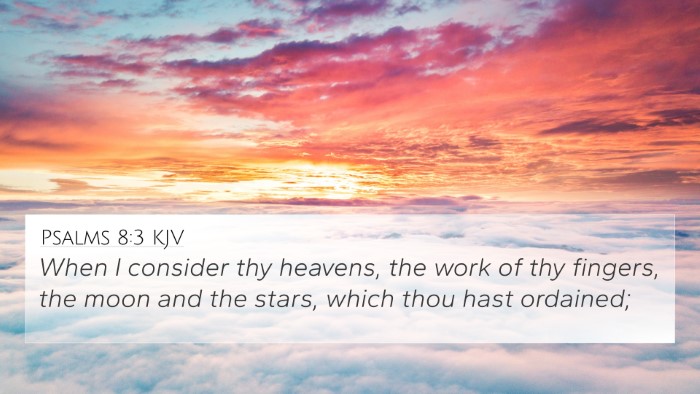 Psalms 8:3 (KJV) »
Psalms 8:3 (KJV) »
When I consider thy heavens, the work of thy fingers, the moon and the stars, which thou hast ordained;
 Job 11:10 (KJV) »
Job 11:10 (KJV) »
If he cut off, and shut up, or gather together, then who can hinder him?
